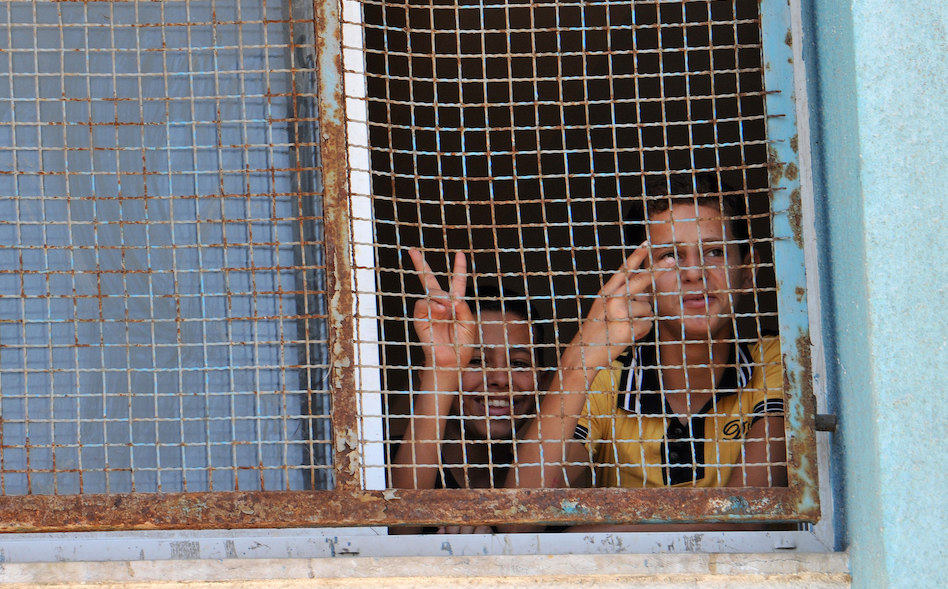Donald Trump has got it dead wrong with the U.S.’ new position on Palestinian refugees. In fact, the Trump administration’s decision last week to cease funding to the UN aid agency for Palestinian refugees (UNRWA) demonstrates shocking ignorance of both the Middle East conflict and refugee law.
Disturbing details of Jared Kushner’s supposed “Deal of the Century” for Israel-Palestine have been leaking for months, so it was no surprise when the Trump administration accused UNRWA Friday of being an “irredeemably flawed operation” that no longer merited U.S. financial support. Many see it as a first step to taking the question of Palestinian refugees off the negotiating table. Kushner is on record as asserting that for Mideast peace, the U.S. might have to “strategically risk breaking things,” and Kushner seems well on his way with such an approach with the Palestinian refugees. But let’s be real: such an approach is nonsense.
Incensed with Trump’s Jerusalem decree last winter, the Palestinian leadership hasn’t met with senior U.S. officials in six months. And the U.S. announcement on UNRWA only added fuel to the flames. In one irate response, a spokesman for Palestinian Prime Minister Rami Hamdallah accused the U.S. administration of an “immoral scandal” by trying to blackmail the Palestinians into abandoning the rights of Palestinian refugees.
With a wave of his hand, Kushner seems to want to dismiss decades of deprivation and dispossession experienced by Palestinian refugees, intending to divest them of any hope for resettlement or restitution. Palestinian negotiator Saeb Erekat asked angrily, “Who gave Trump the […] right to steal my land and my capital and my future […]?” So needless to say, the Trump administration’s UNRWA decision isn’t going down well with the Palestinians.
UNRWA began operations in 1950 after the creation of the state of Israel left 860,000 Palestinian as refugees. Seventy years later, Israel still refuses to re-admit these refugees, so they and their children continue to depend on UNRWA for education, health care and other services. The U.S. has traditionally provided about one-third of UNRWA’s operating budget, contributing more than $350 million to the agency in 2017, so UNRWA will no doubt struggle to make up this funding shortfall.
Some wonder why Palestinian refugees don’t fall under the purview of the UN High Commission for Refugees (UNHCR), but UNRWA predates the UNHCR and — in recognition of UNRWA’s presence — the UNHCR was mandated to care only for refugees not already receiving services from other UN organizations. Thus, were UNRWA ever to shut down operations, these Palestinian refugees would immediately fall under the care of the UNHCR.
Pro-Israel critics of UNRWA lament the fact that the agency grants refugee status not only to those who lost their homes in 1948, but also to their descendants. Yet this is consistent with international refugee norms: the UNHCR’s Handbook on determining Refugee Status specifically states, “If the head of a family meets the criteria of the definition [for refugee status] his dependants are normally granted refugee status […]” The Palestinian refugees scattered across the Middle East today — now numbering over five million — are an inconvenient truth for Israel, but they’re a reflection of the modern country’s settler-colonial origins.
So whether the Trump administration likes it or not, Palestinian refugees will not disappear at Kushner’s whim. The administration’s decision to cut funding to Palestinian refugees may be immoral and inhumane, but defunding or dismantling UNRWA will not cause Palestinian refugees to lose their status. The Palestinians could only ever lose their status if the UN itself chose to rewrite long-established refugee treaties — something highly unlikely in the current climate at the UN.
Another flippant criticism of the UNRWA by the Trump administration is that the agency has “perpetuated and exacerbated the refugee crisis.” But it’s hard to disagree with UNRWA spokesperson Chris Gunness who counters that the blame falls on successive American administrations who have failed for decades to bring a negotiated end to the Palestinian refugee crisis. To Gunness’ point, rather than dismissing the existence of Palestinian refugees — as the Trump administration seems to want to do — it should be working to settle these refugees.
With the Trump administration, it is more clear than ever that the U.S. is no longer a credible mediator in the Palestine-Israel conflict. Like the administration’s decree on Jerusalem, its moves on UNRWA seem intended to give Israel everything it wants without demanding any concessions in return.
As Martin Luther King Jr. once said, “True peace is not merely the absence of tension: it is the presence of justice.” Trump and Kushner may announce some sort of “deal” in the coming months — they might even call it the “deal of the century” — but it will have very little to do with peace.




